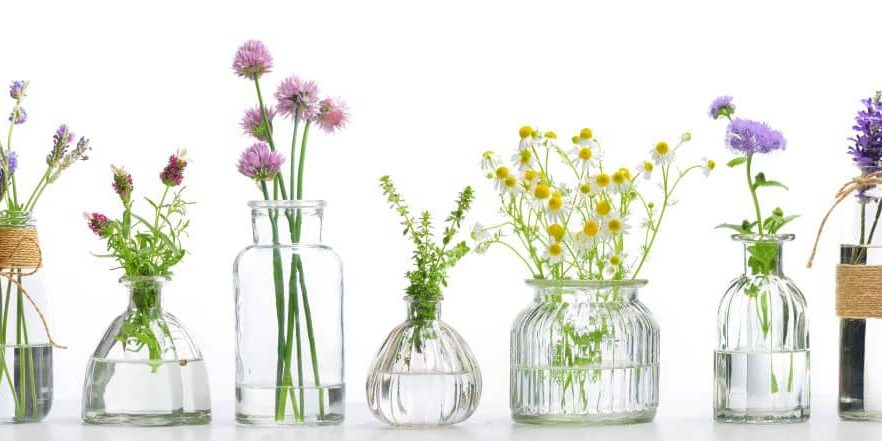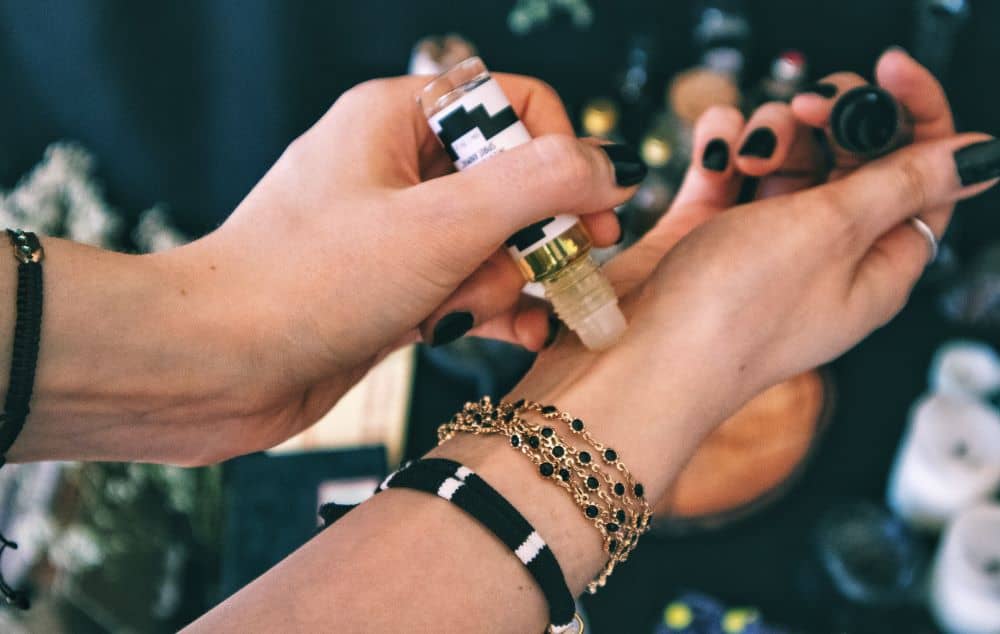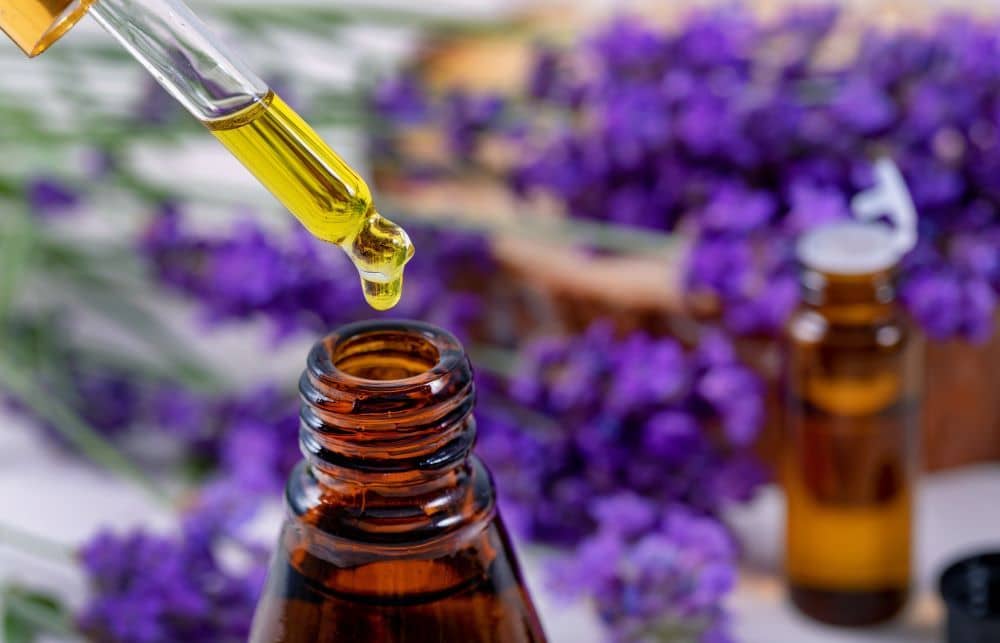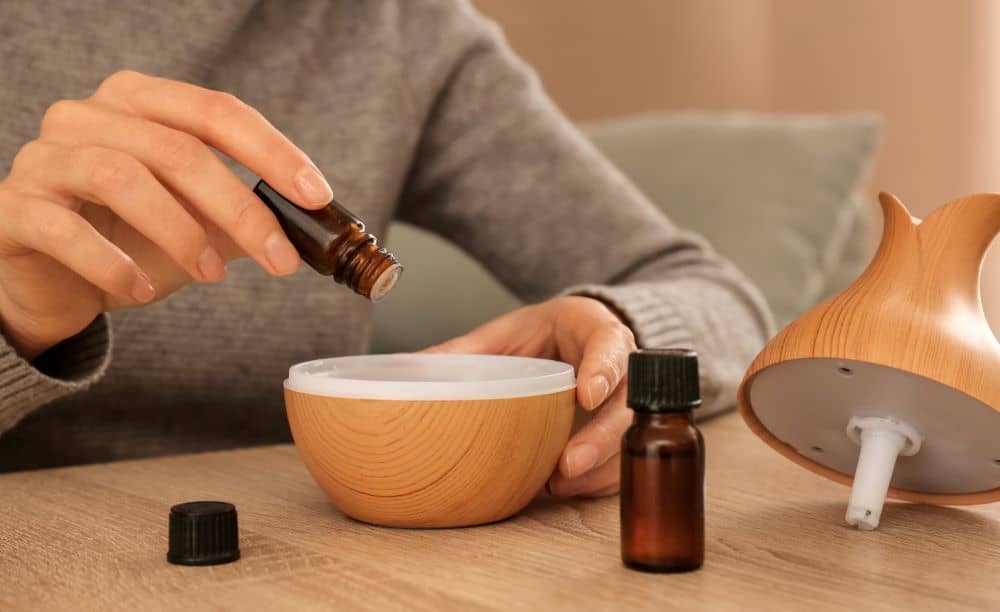Everything You Need To Know About Using Essential Oils Effectively and Safely
Essential oils have become a popular trend in the wellness world, and for good reason. With uses ranging from creating a relaxing atmosphere, aromatherapy, supporting clarity, DIY cleaning solutions, and more, it isn’t surprising to see how essential oils have continually gained popularity.
Overall, essential oil use is considered extremely safe. But did you know that using essential oils improperly could be harmful to you, your family, and your pets? Even though essential oils are sourced from nature, it is still important to use them mindfully.
Here is a guide on using essential oils safely and effectively.
What Is An Essential Oil?
Essential oil is a concentrated compound extracted from a plant that captures the plants’ unique scent, flavour, and essence. More than 90 types of essential oils exist, each offering its potential health benefits and unique scent.
How Do Essential Oils Work?
Our bodies can respond emotionally, mentally, and biologically to the active botanical compounds that give plants their signature aroma.
One of the key ways essential oils are believed to work is via the olfactory senses. The smell is connected to the limbic system, an area in the brain that processes memories and emotions. This gives familiar aromas the power to transport us back to certain memories or emotions.
Some essential oils have also been found to have anti-inflammatory, anti-microbial, and anti-fungal properties.
Essential-Oil Safety
Essential oils have an intrinsic toxic potential, giving them the power to kill germs. However, this toxicity potential also means essential oils need to be used mindfully to avoid reactions.
For instance, oil and water do not mix, meaning that water-based liquids are not effective at diluting essential oils. Adding essential oils to plain drinking water can be dangerous as it allows the oil to contact sensitive tissue such as the esophagus at full strength.
Also, the olfactory system experiences fatigue after around 30 minutes, meaning we lose the ability to smell even the most powerful scents around us. This can increase the risk of sensitization or overexposure, terms used to describe intolerance to essential oils.
How to Use Safely Essential Oils
To safely incorporate essential oils into your daily life, we compiled a list of tips to help get you started.
Less Is Best
When it comes to essential oils, more does not necessarily equal better. Essential oils are highly concentrated extracts and need to be used sparingly. A little goes a long way!
Pay Attention To Quality
Quality is crucial when it comes to essential oils, making it an area where a higher cost is likely worth the investment.
For instance, a pound of rose essential oil requires 10,000 pounds of rose petals to produce. This manufacturing process takes a significant amount of time and labour. However, some manufacturers dilute oils, assuming the customer won’t know any better. This makes it important to buy from a trusted, knowledgeable oils company with high ethics and standards.
Here are some tips for ensuring you purchase high-quality essential oils:
- Find an essential oil that only contains aromatic plant compounds and is free of synthetic oils or additives
- Pay attention to the name (pure oils will usually list the actual botanical name of the plant rather than a term such as “essential oil of lemon”
- Choose essential oils that have been extracted through mechanical cold pressing or distillation
- Purchase from a brand that is known for producing other high-quality products
- Choose organic essential oils is possible
- Look for third-party certification
- Look for independent lab assessments of the essential oil
Dilute, Dilute, and Dilute Some More
It is not recommended to use undiluted essential oils directly onto the skin. Doing so can make you susceptible to allergic reactions or sensitization.
A carrier oil should always be used to dilute essential oil before using it topically. Fractionated coconut oil makes an excellent carrier oil thanks to its moisturizing properties, long shelf life, and easy spreadability.
Avoid trying to dilute an essential oil with water as the two will not mix.
Test the Purity of Your Essential Oils
A higher price tag is usually a good way to ensure you are receiving a high-quality essential oil, but you can also test an essential oil’s quality yourself.
Place a drop of essential oil onto a piece of white computer paper. After 24 hours, there should be no grease stain on the paper. If you see a grease stain, it means the oil has been diluted with a carrier oil. If the oil is pure, it will completely evaporate. A faint ring may appear, but that should be all.
Make Sure Your Oils Haven’t Gone Bad
If an essential oil goes bad, it is time to toss it. How do you know if an essential oil has gone bad? Smell it. If an oil no longer smells how it used to or smells off, it has likely gone bad.
Some of the essential oils that tend to go bad the fastest include:
- Lemon
- Sweet orange
- Lime
- Bergamot
Resinous oils such as cedarwood, Douglas fir, frankincense, and pine tend to last longer.
Avoid Products Listing “Absolute” on the Label
If a product lists “absolute” on the label, it means it is a petroleum-based by-product of the extraction process. This should not be used on the skin.
Ignore “Grade” Labels
The terms “medical grade” or “clinical grade” listed on a product may make you assume you are getting a high-quality essential oil, but these are simply unregulated marketing terms that do not relate to quality.
Use the Proper Tools
When choosing a diffuser, look for one made specifically for use with essential oils. These diffusers are built to vaporize the essential oils in a way that is easier for the body to process.
Diffuse Wisely.
If using a diffuser, do not use it continuously for more than 30 minutes at a time to avoid the risk of overexposure.
Be Mindful When Using a Diffuser Around Others
Everyone responds differently to essential oils, with children being particularly susceptible to negative effects. The oil that you find calming when diffused may be stimulating to a child or cause a migraine in someone else. For this reason, it is important to avoid diffusing essential oils in schools, at work, in meetings, or at dinner parties.
Be Mindful of Pets
Essential oils can be difficult for pets to process and even dangerous. Make sure pets can easily leave the room to get fresh air if you are using a diffuser.
Cats need extra attention when it comes to the use of essential oils as they lack a liver enzyme needed to metabolize certain compounds. Any essential oil may pose a problem for a cat, but some oils are particularly harmful, including:
- Cinnamon oil
- Pennyroyal oil
- Pine oil
- Citrus oils
- Tea tree oil
- Eucalyptus oil
- Birch oil
- Peppermint oil
- Sweet birch oil
Know Your Lavender
Lavender essential oil is notorious for its calming properties. However, there are several varieties of lavender, some of which can be stimulating!
If you are looking to add lavender to your bedtime routine to encourage a calm, relaxing atmosphere, avoid spike lavender as it is a stimulating scent.
Be Cautious of Online Claims
While a Facebook or social media post may appear trustworthy, it is important to perform your research to confirm any claims.
Prioritize Essential Oil Blends
Using essential oil blends rather than single oils can help prevent entrainment, a phenomenon where the brain associates a certain scent with a certain time in your life. For instance, if you diffuse lavender constantly during a time of grieving, you may always be reminded of that time any time you smell lavender in the future.
Switch Up Your Oils
To avoid sensitization or overexposure, switch up the blends or single oils you use every two to four weeks.
Know That Essential Oils Are Not A Cure-All
With the right knowledge, essential oils are certainly a powerful wellness tool to have on hand. However, they are not a cure-all.
When a different intervention is appropriate, be sure to prioritize the proper treatment.
Ingest Essential Oils Only With Proper Guidance
Ingested certain essential oils can be harmful. Even a drop or two of essential oil in a glass of water can be dangerous as oil and water do not mix, leaving the stomach lining susceptible to damage from undiluted oils. Always follow the manufacturer’s directions and indications regarding essential oil ingestion.
When in doubt, consult a medical professional who is certified in medical aromatherapy before taking an essential oil internally.
Avoid Using Certain Essential Oils Topically When in the Sun
Some essential oils, such as those in the citrus family, significantly raise your risk of sunburn. It is important to know which essential oils may react to sunlight and plan accordingly.
Start Slow
When using a new essential oil topically, perform a patch test first by diluting the oil with a carrier oil and applying a small amount to an inconspicuous area such as the wrist. Wait 24 hours to observe any reactions.
When using a new scent in the diffuser, start small and limit the time of exposure to several minutes before switching it off and ensuring there are no reactions
Final Thoughts
Essential oils are complex compounds that can provide a variety of benefits when used properly and safely. Do you have any favourite essential oils or favourite ways to use essential oils?














